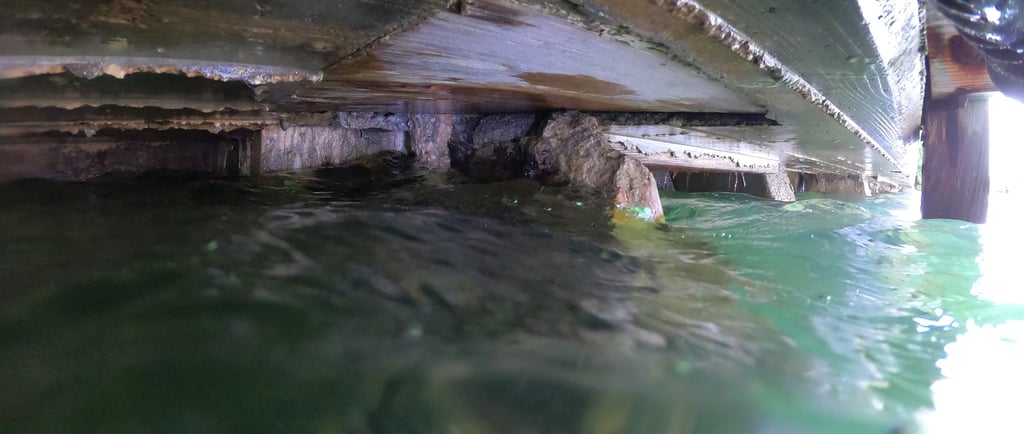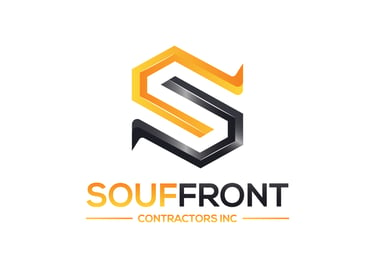Expert Engineering Reports for Comprehensive Seawall Inspections, Repairs, and Full Construction.
Common Causes of Seawall Failure in South Florida
Seawalls are essential to protecting South Florida's waterfront properties from erosion, flooding, and storm surge.
Oscar Souffront
4/24/20252 min read


Common Causes of Seawall Failure in South Florida:
What Every Property Owner Should Know
Seawalls are essential to protecting South Florida's waterfront properties from erosion, flooding, and storm surge. However, many seawalls across Miami-Dade, Broward, and Palm Beach counties are showing signs of stress or failure due to age, environmental conditions, and construction flaws. Understanding the common causes of seawall failure can help homeowners, real estate agents, property managers, and investors prevent costly damage and make informed maintenance decisions.
Why Seawalls Fail: Key Causes
1. Poor Drainage and Hydrostatic Pressure
One of the most common reasons seawalls fail is due to water pressure buildup behind the wall. Without proper weep holes or drainage systems, rainwater and irrigation runoff accumulate, creating hydrostatic pressure that pushes the wall outward or causes cracking.
Signs to watch for:
Bulging or bowing of the wall
Water seeping through joints
Soil loss behind the wall
Learn more about identifying these warning signs through our comprehensive bulkhead inspection guide.
2. Corroded Reinforcement and Deteriorating Materials
Corroded Reinforcement and Deteriorating Materials Saltwater exposure, especially in coastal regions like Fort Lauderdale or Miami Beach, accelerates corrosion in steel reinforcements within concrete seawalls. This weakens the structural integrity and causes spalling, cracking, and eventual collapse. Damaged or deteriorating caps are particularly vulnerable and may require professional seawall cap repair to prevent water intrusion and further damage.
Prevention tip: Choose marine-grade materials and schedule routine inspections to catch early signs of corrosion.
3. Soil Erosion and Scour at the Base
Wave action, boat traffic, and tides can gradually erode the base of the seawall, undermining its foundation. Inadequate riprap or footer depth exacerbates the issue, particularly after storms or king tides.
Solution: Install filter fabric, footer repair, or add toe protection such as boulders or concrete mats.
4. Improper Design or Installation
Many older seawalls were not built to today’s engineering standards. Using undersized tiebacks, shallow footings, or unreinforced concrete can lead to premature failure.
Warning: Seawalls built before 1980 are especially vulnerable and should be evaluated by a certified engineer.
5. Tree Root Intrusion and Biological Growth
Trees growing near seawalls can send roots through cracks and joints, displacing concrete and allowing water intrusion. Algae and marine growth also contribute to surface degradation.
Tip: Remove vegetation near the wall and keep it clear of biological buildup.
Geographic Risk Factors in South Florida
Different cities present different challenges:
Miami Beach: High water tables and frequent tidal flooding demand higher seawall elevations (NAVD88 compliance).
Hollywood & Dania Beach: Older seawalls often lack modern drainage systems.
Boca Raton & Delray Beach: High-end properties may hide problems under decorative facades or docks.
Frequently Asked Questions (FAQ)
How can I tell if my seawall is failing?
Look for signs like cracks, leaning, erosion behind the wall, or rust stains. A professional inspection can confirm the severity.
What is the typical lifespan of a concrete seawall in South Florida?
Around 30–50 years with proper maintenance. Environmental factors and construction quality can significantly shorten or extend this.
Is it better to repair or replace a failing seawall?
This depends on the extent of damage. Surface cracks may be repairable, but leaning or bowing may require full replacement.
Final Thoughts and Next Steps
Understanding the causes of seawall failure is the first step in protecting your investment. Whether you’re a homeowner near Biscayne Bay or a property manager overseeing waterfront condos in Pompano Beach, proactive inspections and timely repairs can save tens of thousands in restoration costs.
Need an expert seawall inspection in South Florida? Souffront Contractors offers signed and sealed seawall reports, underwater video documentation, and detailed repair estimates.
Call us at 877-420-7220 or visit souffrontcontractors.com/seawall-inspections to schedule your inspection today.
© 2012-2024 Souffront Contractors & Engineers | All Rights Reserved
Estimates@souffrontcontractors.com
Phone: 877-420-7220
© 2024. All rights reserved.


